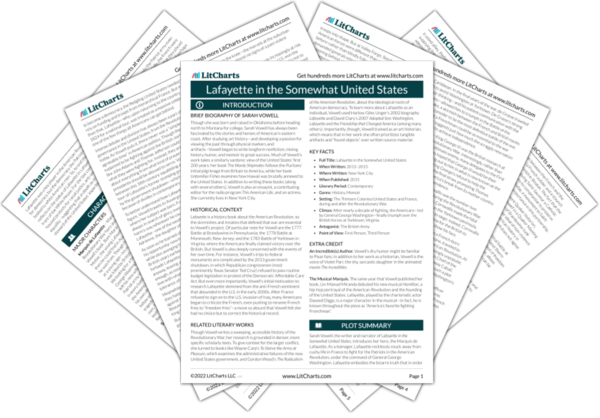Thomas Jefferson Quotes in Lafayette in the Somewhat United States
Who knows what happened to that particular chair. It could have been burned during the British occupation of Philadelphia in the winter of 1777-78, when firewood was scarce. But it might have been a more helpful, sobering symbolic object than that chair with the rising sun. Then perhaps citizens making pilgrimages to Independence Hall could file pass the chair Jefferson walked across an aisle to sit in, and we could all ponder the amount of respect, affection, and wishy-washy give-and-take needed to keep a house divided in reasonable repair.
Because these words convinced Louis XVI to open his heart and, more important, his wallet to the patriots, Vergennes’s memo arguably had as much practical effect on the establishment of American independence as the Declaration of Independence itself. Jefferson’s pretty phrases were incomplete without the punctuation of French gunpowder.
Anyone who accepts the patriot’s premise that all men are created equal must come to terms with the fact that the most obvious threat to equality in eighteenth-century North America was not taxation without representation but slavery. Parliament would abolish slavery in the British Empire in 1833, thirty years before President Lincoln’s Emancipation Proclamation. A return to the British fold in 1778 might have freed American slaves three decades sooner, which is what, an entire generation and a half? Was independence for some of us more valuable than freedom for all of us? As the former slave Frederick Douglass put it in an Independence Day speech in 1852, “This is your 4th of July, not mine.”












